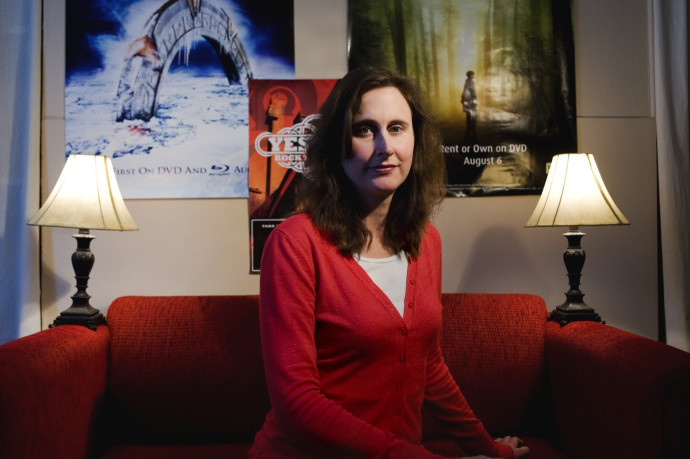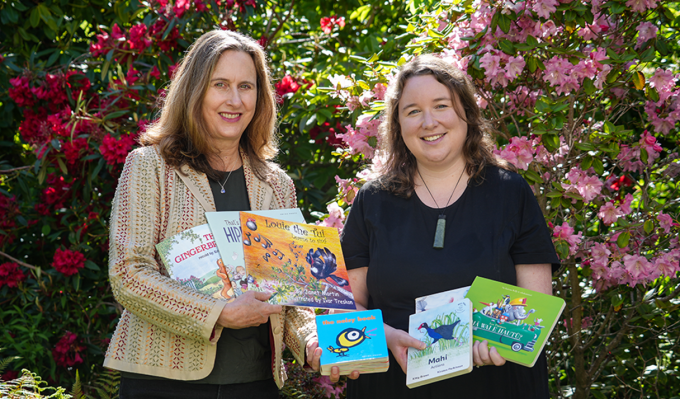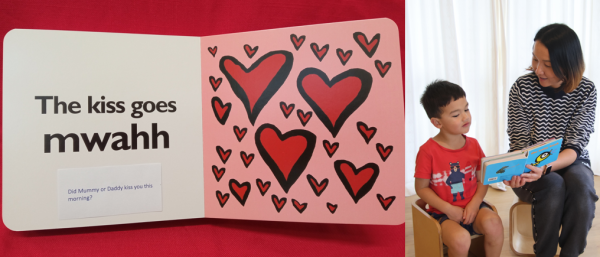Impact story: Helping children self-regulate

Thirty years ago, Professor Elaine Reese FRSNZ from Ōtākou Whakaihu Waka - University of Otago received her first Marsden Grant to look at language, self and memory in early childhood.
This enabled her to recruit over 50 families for a two-year study. The children were observed at 19 months and then again at 25, 32 and 40 months.
As well as assessing children’s non-verbal memory, Reese and her researchers also recorded mothers and children discussing recent unique past events, eliciting information about parental reminiscing style.
“We asked them to talk to their child about an event however they wished, for as long as they liked. There are huge individual differences in the way mothers talk with a barely verbal child,” says Reese.
I could never have imagined that my blue skies social science research would have such long-reaching benefits.
Reese was awarded her second Marsden Fund grant in 1998 to examine the origins of autobiographical memory. “And lo and behold, the mother’s reminiscing style was important, but primarily for kids who had a strong self-concept going into it. Until children have a good solid self-concept, they’re not able to benefit from elaborative reminiscing,” says Reese.
This work led to Reese’s third Marsden looking at memory across generations and the construction of self. Reese thought that mothers who reminisce elaboratively with their children about emotional events were more likely to have a secure attachment style and so it proved.
By 2008, Reese had realised the importance of continuing to follow up with the children from her earliest studies as adolescents and young adults and the University of Otago funded her to keep the longitudinal study going.
“Here’s where the story really turns. We had over 150 kids who we have now followed up through to young adulthood. Adolescence is vital in developing identity and understanding how your early experience shapes who you are. That in turn is important for well-being, for life satisfaction, and self-esteem,” says Reese.
At around the same time, Reese received her fourth Marsden Fund grant to test cross-cultural differences in the life stories of young people from Māori, European and Chinese backgrounds. This study showed that the ability to reminisce about their lives was linked to wellbeing for 18 - 21 year olds and was effective even earlier for Māori teens.

Professor Elaine Reese and Dr Amanda Clifford.
Living in Dunedin, Reese was well aware of the results of the internationally famous ongoing Dunedin Multidisciplinary Health and Development Study (the Dunedin Study). This study revolutionised understanding of how people’s early years have an impact on mental and physical health as they age. Particularly influential was a 2011 paper, which showed the level of self-control displayed in early childhood predicts health, wealth, and public safety more accurately than other measures such as intelligence or socio-economic status.
Professor Karen Salmon (Te Herenga Waka - Victoria University of Wellington) is a frequent collaborator with Reese. One of their key projects involved coalescing research on language development and self-regulation into an influential paper in 2016.
Language allows children to reflect over time, which has a positive effect on self-regulation. According to Salmon, language skills are vital in understanding other people and abstract concepts like emotions.
“Where children have poorer language skills it is harder for them to develop critical developmental skills, which go on to influence all future outcomes: health, wealth, and emotional wellbeing in adulthood.”
Reese built on this work, and that of Professor Emerita Margaret Carr (Te Whare Wānanga o Waikato - University of Waikato), who helped create the New Zealand early childhood curriculum Te Whāriki, to create the ENRICH programme. It is about strengthening teaching practice to promote reading, reminiscing, maths and sound-play.
In the early 2010s, colleague Professor Dione Healey (University of Otago) developed ENGAGE, a set of guided play activities that help hyperactive young children build their self-regulation at the right developmental time. She was funded by the Health Research Council, private foundations and the Ministry of Education.
In research trials with a diverse range of tamariki, ENGAGE showed significant and ongoing improvements in children’s self-regulation, with reductions in hyperactivity, aggression, and peer problems, and with improvements in their attention, effortful control, and emotional regulation.
ENRICH and ENGAGE were brought together in a national study to look at their impact in early childhood education.
In 2017, the late Emeritus Professor Richie Poulton CNZM FRSNZ, then head of the Dunedin Study, was asked by the Wright Family Foundation to look into how teachers could promote children’s self-control or ‘self-regulation’. He had recently read the paper by Salmon and Reese that brought together research to show that language is vital in allowing self-regulation and was aware of Reese’s work on ENRICH as well as the work of Healey on ENGAGE.
Poulton and Reese and a team of researchers worked to design such a study, which started in 2021 using money from the Wright Family Foundation and the experience of Methodist Mission Southern in translating research into curriculum design. BestStart Educare, New Zealand’s largest provider of early learning centres, came on board as the vehicle for the study, providing access to over 130 centres and well over a thousand staff.

(L) Example of a noisy book used in the studies (R) research associate Dr Yan Chen with her son (an attendee of a BestStart ENRICH centre).
In 2024, Reese, along with Professors Justin O’Sullivan (Waipapa Taumata Rau - University of Auckland) and Vincent Reid (University of Waikato), and their international, interdisciplinary team were awarded the fifth Marsden Fund Council Award to address declining academic achievement and wellbeing among schoolchildren in Aotearoa New Zealand. This award, worth $3 million, allows Reese to follow up with children in their first two years of primary school to measure the impact on their education and socioemotional skills.
According to those assessing the award, this research “has potential to revolutionise childhood education on an international scale”.
When asked how Marsden funding of her work has affected Aotearoa New Zealand, Reese responded: “When I started doing this research it was a very intellectual fundamental science question – I could never have imagined that my blue skies social science research would have such long-reaching benefits. The new research shows that we can improve self-regulation across the board in toddlers. I know that if it can be used, we’ll see a more prosperous, healthy society, involving huge future savings.”
- Ceridwyn Robert, 2025.
